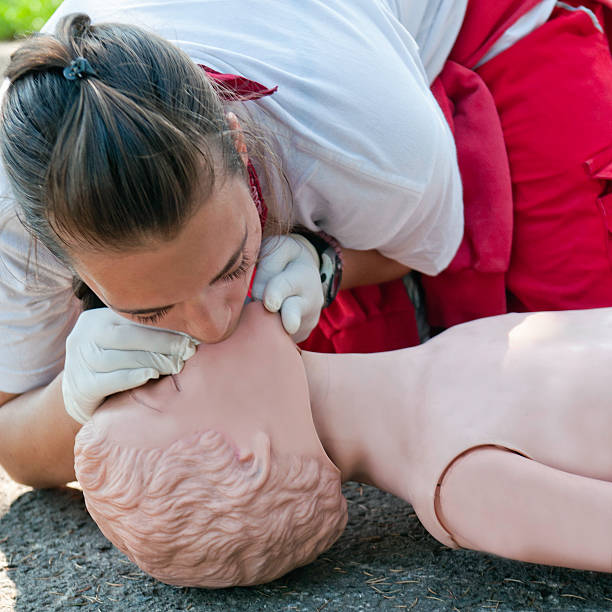Lifeguarding is a noble profession that requires a unique combination of skills, knowledge, and physical fitness. As the first line of defense in aquatic safety, lifeguards play a vital role in ensuring the well-being of beachgoers and pool users.
While lifeguard training and certification in USA and other locations varies, one common denominator across reputable organizations is the emphasis on physical fitness.
In this article, we will explore why physical fitness is a key factor in lifeguard training and beach patrolling, highlighting its importance in maintaining public safety.
Lifeguarding: A Physically Demanding Profession
Lifeguarding is not for the faint of heart. It demands the ability to respond swiftly and effectively in emergency situations, often requiring physical exertion and stamina. Whether it’s performing a water rescue, providing CPR, or conducting beach patrols, lifeguards need to be physically fit to handle the challenges that arise.
Proper lifeguard training classes near me will focus on developing cardiovascular endurance, strength, agility, and overall physical fitness to prepare individuals for the rigors of the job.
Swimming Skills and Water Competence
One of the primary requirements for becoming a lifeguard is the ability to swim proficiently. Strong swimming skills enable lifeguards to navigate the water swiftly and efficiently, reducing response times during emergencies.
Being physically fit enhances a lifeguard’s endurance and swimming ability, enabling them to cover large areas of water and respond effectively to distressed swimmers. Lifeguard certification programs place significant emphasis on swimming competency, ensuring that candidates can handle various water scenarios with ease.
Emergency Response and Vigilance
A crucial aspect of lifeguarding involves the ability to stay alert and attentive at all times. Physical fitness directly impacts an individual’s alertness and response time, which are critical in preventing accidents and providing swift aid when needed. Lifeguard classes emphasizes physical fitness to enhance mental acuity, ensuring that lifeguards remain vigilant during long hours of patrolling.
By maintaining optimal physical fitness levels, lifeguards can sustain their focus and react promptly to emergencies, potentially saving lives.
Strength and Rescue Techniques
Effective rescue techniques require a combination of physical strength and proper training. Lifeguards must possess the physical ability to perform water rescues, which often involve swimming against strong currents or carrying individuals to safety.
A physically fit lifeguard can execute rescue techniques with confidence and precision, minimizing the risk to both themselves and the victim. Comprehensive lifeguard certification and recertification programs include strength training exercises that build core muscles, allowing lifeguards to perform rescue maneuvers effectively.
Endurance and Stamina
Beach patrolling and lifeguarding involve long hours of physical activity under the sun and in challenging weather conditions. Lifeguards must maintain high levels of endurance and stamina to withstand prolonged periods of patrolling, responding to emergencies, and maintaining a constant presence on the beach.
Physical fitness training enhances an individual’s endurance and stamina, enabling lifeguards to sustain their performance throughout their shifts, even during demanding situations.
Mental Resilience and Stress Management
Lifeguarding can be a mentally challenging profession, as lifeguards often face high-pressure situations and must make split-second decisions. Physical fitness plays a significant role in enhancing mental resilience and stress management. Regular exercise releases endorphins, which help reduce stress and improve mood.
By maintaining physical fitness, lifeguards can better cope with the demanding nature of their work, stay focused during emergencies, and make sound judgments. Lifeguard training in California places importance on mental resilience, teaching lifeguards techniques to manage stress effectively and maintain a clear state of mind in critical situations.
Role Modeling and Public Perception
Lifeguards serve as role models for the community, especially for young beachgoers and aspiring swimmers. Physical fitness plays a vital role in shaping public perception and inspiring confidence in the lifeguarding profession.
Fit and capable lifeguards not only project an image of strength and competence but also instill a sense of trust and assurance among beach visitors. By prioritizing physical fitness, lifeguards convey their commitment to safety and their ability to handle emergencies, further reinforcing the importance of lifeguard certification and training.
Personal Health and Injury Prevention
Maintaining physical fitness is not only crucial for performing the duties of a lifeguard but also for ensuring personal health and preventing injuries. Lifeguards are exposed to physically demanding situations that may put stress on their bodies. Regular exercise and conditioning help build strength and flexibility, reducing the risk of strains, sprains, and other injuries.
Furthermore, physical fitness promotes overall health and well-being, enabling lifeguards to stay healthy and maintain their careers in the long term. Lifeguard training programs emphasize the importance of personal health and injury prevention to ensure the longevity of lifeguards’ careers.
Final Words
Physical fitness is an essential aspect of lifeguard training and beach patrolling, influencing various elements of the profession. From enhancing swimming skills and response times to promoting mental resilience and injury prevention, physical fitness directly contributes to lifeguards’ effectiveness and the safety of those they protect.
Aspiring lifeguards seeking lifeguard certification and training should prioritize physical fitness as a key component of their preparation. The American Lifeguard Association, among other reputable organizations, recognizes the significance of physical fitness and incorporates it into their comprehensive training programs.
By embracing physical fitness, lifeguards can excel in their roles, instill public confidence, and ensure the well-being of beachgoers and pool users.













